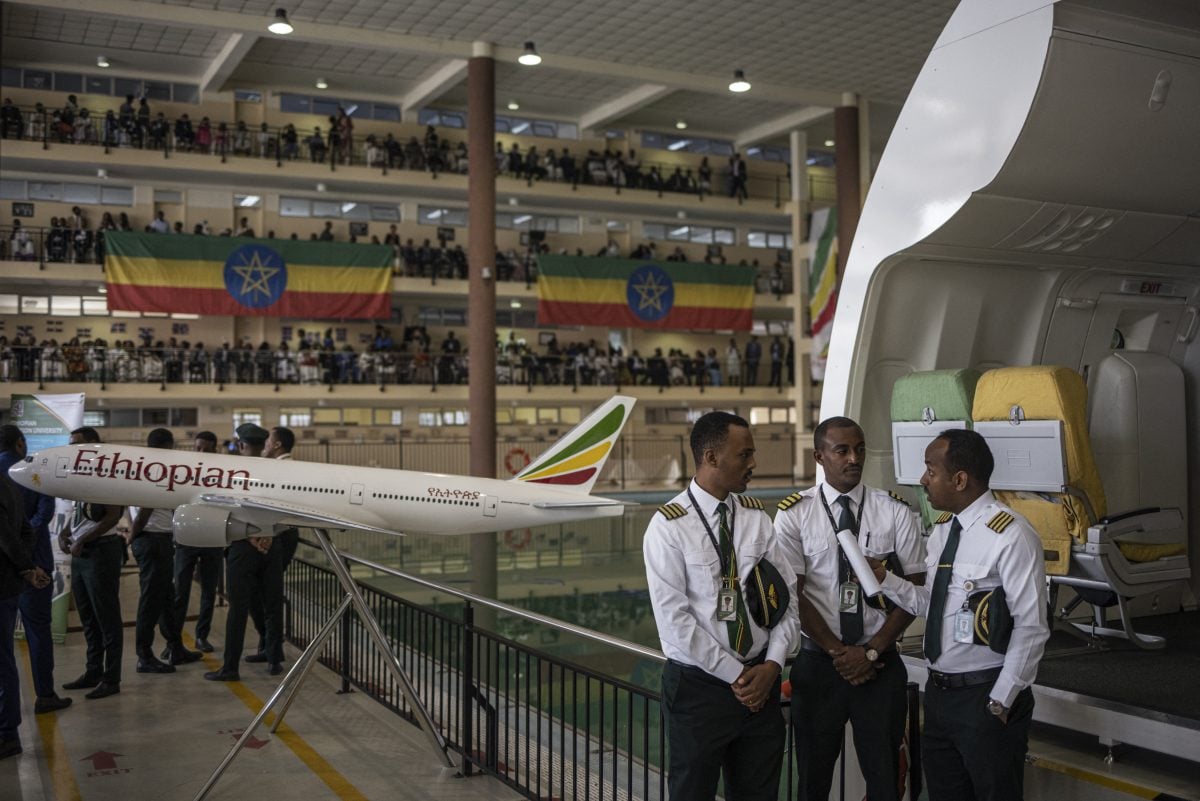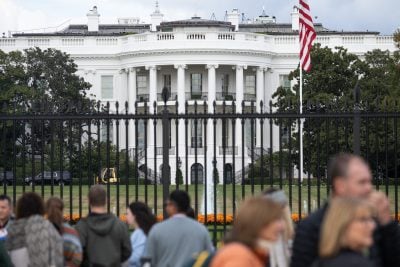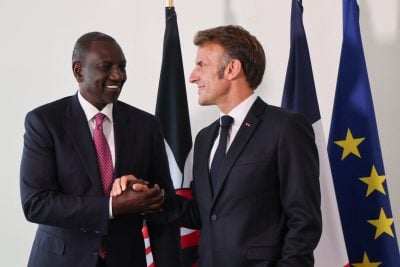In early October the United States announced it would be helping to finance the construction of a new $10bn airport in Ethiopia, as the country seeks to extend its strategic and commercial interests in the Horn of Africa.
During a recent visit to Ethiopia prior to the United Nations General Assembly (UNGA), the US’s senior advisor for Africa, Massad Boulous, announced that the US would be supporting the construction of the Bishoftu International Airport.
The new hub, which is located 40km south of the capital Addis Ababa, is planned to ease congestion at the existing Bole International Airport and help the state-carrier Ethiopian Airlines continue on its strong growth trajectory.
Boulous confirmed that the US International Development Finance Corporation (DFC) will play a role in financing the airport, which is ultimately planned to carry more than 100m passengers and almost 4m tonnes of cargo each year by 2029.
He also noted that the DFC is collaborating with US aviation giant Boeing, which is a major supplier to Ethiopian Airlines, on initiatives related to Ethiopia and other African markets.
Direct flights on the horizon
Sean Mendis, an African aviation expert, explains that the US is motivated by “both strategic and commercial motivations”.
“The construction of the new airport is critical for Ethiopian Airlines, particularly because of both the location and the altitude of the existing Bole Airport.”
“It is right in the middle of town, so the potential for expansion is limited: it has pretty much grown as far as it can grow, but Ethiopian Airlines wants to expand further.”
“More importantly, Bole is also at a significantly higher altitude than the new proposed site – Bishoftu will be over 2000 feet lower. The altitude of the current airport means that Ethiopian Airlines is not able to fly non-stop to North America without significant restrictions on the aircraft,” he adds.
“Right now they can only fly to North America if the planes stop in Lomé, Abidjan, or Rome [to refuel], meaning more costs and more time.”
Mendis suggests that securing this non-stop connectivity is likely to be a major motivating factor for the US, particularly given the geostrategic importance of the Horn of Africa.
“The US has a number of military bases, outposts and missions in the region – whether that is in South Sudan, or Somalia, or Yemen, which are all places within a short distance of Ethiopia,” Mendis says. “Having the ability to get people in and out of there more quickly and easily could be part of their considerations.”
Sindy Foster, an African aviation analyst and principal managing partner at London-based aviation consultancy firm Avaero Capital Partner, similarly notes that this deal helps “to anchor US influence in a critical corridor”.
Ethiopian Airlines a key Boeing customer
The US decision to help finance this new project also has commercial motivations, not least because of the importance of Ethiopian Airlines to Boeing, which employs almost 150,000 people in the US.
In 2023, Ethiopian Airlines ordered 31 Boeing jets, with an option for 36 more. The initial 31 planes alone represented a $5.6bn order, the largest purchase of Boeing jets ever made by an African airline.
This has been followed up with further orders, with Ethiopian Airlines now waiting for more than 100 Boeing planes to be delivered, although delays have so far hampered the airline’s expansion plans.
Mendis points out that “Boeing has a definite interest in this airport coming into being because once they are able to fly non-stop from Addis Ababa to destinations across the US, that opens up the door for Boeing to sell more planes to Ethiopian Airlines.”
“In particular, the Boeing 777 models which Ethiopian Airlines has committed to are intended to fly non-stop between Addis Ababa and North America, which they cannot do at the current airport.”
Indeed, Foster adds that the US decision to help finance Bishoftu is “clearly part of a bigger US play… Ethiopian Airlines is Boeing’s biggest African customer, and this airport will help strengthen that industrial and aviation relationship.”
“It could also help open up opportunities for US companies in sectors beyond aviation,” Foster tells African Business.
“Expect US interest in East African industries such as logistics, digital infrastructure, clean energy, health and agri-processing – all sectors that plug into a cargo-driven strategy.”
Bolstering US influence in East Africa
Given the focus of the current administration on working to diminish the global influence of China, some analysts have suggested the project could also be designed to bolster US authority in East Africa and the wider region, at the expense of Beijing.
Ethiopia, which is home to the second largest population on the continent, has emerged as an important country in this respect. While maintaining strong relationships with the US and Western organisations – not least because of the ongoing financial support package being delivered by the World Bank and the International Monetary Fund (IMF) – Addis Ababa has also developed strong relationships with Beijing, particularly since joining the BRICS group of emerging economies in 2024.
Relations slumped with the US during the devastating civil war in the Tigray region; the Biden administration restricted economic and security assistance to Ethiopia during the war and cut access to the tariff-free African Growth and Opportunity Act. Some aid restrictions were rolled back in 2023, but the Trump administration in September renewed national emergency legislation which was introduced to deal with “the unusual and extraordinary threat to the national security and foreign policy of the United States constituted by the situation in and in relation to northern Ethiopia”.
By contrast, China is the leading source of foreign direct investment into Ethiopia, with the Ethiopia Investment Commission (EIC) recently saying there are over 4,500 Chinese-run projects currently ongoing in the country.
Foster believes that “this definitely looks like Washington trying to counter Beijing’s infrastructure dominance with a flagship aviation investment – it signals an alternative financing model with less sovereign debt [compared to Chinese financing models].”
With that said, Mendis is sceptical that the project will be enough to diminish China’s influence in Ethiopia and the region.
“Even with this project being partly financed by the US, the likelihood is that the bulk of the construction will be done by Chinese companies,” he tells African Business.
“The US is not competitive in providing construction solutions for commercial projects in Africa – that is pretty much locked in by China, Turkey and other players who can do as good a job for much cheaper.”
While likely insufficient to have a chance of seriously countering Chinese influence in the region, the US decision to help finance Ethiopia’s new airport does reflect the importance Washington is placing on its relationship with Addis Ababa, given the strategic relevance of the Horn of Africa, Ethiopia’s proximity to a major US naval base in neighbouring Djibouti and the commercial importance of Ethiopian Airlines to Boeing.
But perhaps more straightforwardly, Mendis also believes that investing in the new Bishoftu International Airport is simply a relatively safe investment decision with the potential to offer high returns.
Indeed, the commercial success of Ethiopian Airlines – which is posting annual revenues in excess of $7.5bn – and the relative stability of the Ethiopian market give the US strong reasons to get involved. The participation of multinational organisations such as the African Development Bank (AfDB) further helps to minimise the downside risks.
As Mendis notes, this is “a solid infrastructure project with as blue chip a return as you can get from African infrastructure”.
Want to continue reading? Subscribe today.
You've read all your free articles for this month! Subscribe now to enjoy full access to our content.
Digital Monthly
£8.00 / month
Receive full unlimited access to our articles, opinions, podcasts and more.
Digital Yearly
£70.00 / year
Our best value offer - save £26 and gain access to all of our digital content for an entire year!

 Sign in with Google
Sign in with Google 



